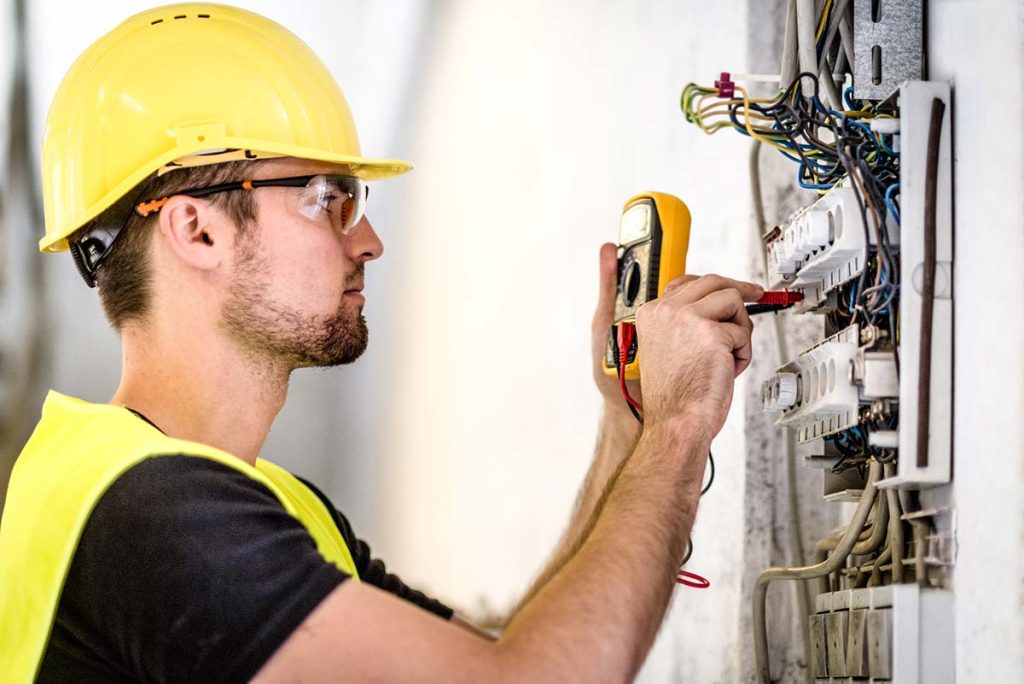We understand the impact an electrocution injury can have on a person’s life and are committed to helping injured Missouri workers get the compensation they need and deserve.

Electrocution injuries are a serious concern in the workplace, with 126 fatal electrical injuries reported in 2020. These injuries can often be prevented with proper training and safety measures, but they are still common in certain industries. In this article, we’ll discuss the industries with high rates of electrocution injury and why these injuries are prevalent in these industries. We’ll also provide some guidance on what to do if you’ve suffered an electrical injury on the job.
Industries with High Rates of Electrocution Injury
- Construction and Extraction
- Installation, Maintenance, and Repair
- Grounds Cleaning and Maintenance
- Transportation and Material Moving
- Farming, Fishing, and Forestry
Why are Electrocution Injuries Prevalent in These Industries?
Construction and Extraction
Construction and extraction workers are at high risk for electrocution injuries due to the nature of their work. They often work with electrical tools and equipment and are frequently exposed to electrical hazards such as overhead power lines and live electrical wires. In addition, they may work in environments where electrical conductivity is increased, such as in wet or damp conditions.
Installation, Maintenance, and Repair
Workers in the installation, maintenance, and repair industry also face a high risk of electrocution injuries due to their exposure to electrical hazards. They may work with electrical wiring, transformers, and other electrical equipment, which can pose serious risks if not handled properly.
Grounds Cleaning and Maintenance
Grounds cleaning and maintenance workers may also be at risk for electrocution injuries due to their exposure to electrical hazards. They may work with power tools and equipment and may come into contact with overhead power lines or live electrical wires while tending to outdoor areas.
Transportation and Material Moving
Workers in the transportation and material moving industry may also be at risk for electrocution injuries due to their exposure to electrical hazards. They may work with electrical equipment and vehicles and may come into contact with live electrical wires or equipment while loading and unloading cargo.
Farming, Fishing, and Forestry
Workers in the farming, fishing, and forestry industries may also be at risk for electrocution injuries due to their exposure to electrical hazards. They may work with electrical equipment and machinery, and may come into contact with overhead power lines or live electrical wires while tending to outdoor areas.
What to Do if You’ve Suffered an Electrical Injury on the Job
If you’ve suffered an electrical injury on the job, it’s important to seek immediate medical care. Electrical injuries can be serious and can cause long-term damage to the body, so it’s important to get treatment as soon as possible.
The second step is to give an incident report. This includes submitting details of where you were when the injury occurred, what you were doing, and who you were with. It’s important to be as detailed as possible in this report, as it will be used to document the accident and help determine the cause of the injury.
To further strengthen your case, take photos of the accident site and any visible injuries you may have sustained. This documentation can be used to support your claim and help your attorney build a strong case.
The third step is to contact an experienced St. Louis workers comp attorney to help you pursue a workers’ comp claim. An experienced attorney can help you navigate the workers’ comp process and ensure you receive the compensation you deserve.
St. Louis Workers Comp Attorney
At The Law Office of James. M. Hoffman, we understand the impact an electrocution injury can have on a person’s life and are committed to helping injured Missouri workers get the compensation they need and deserve.. Our team has over 30 years of experience and the knowledge and resources to help you pursue a successful workers’ comp claim.
